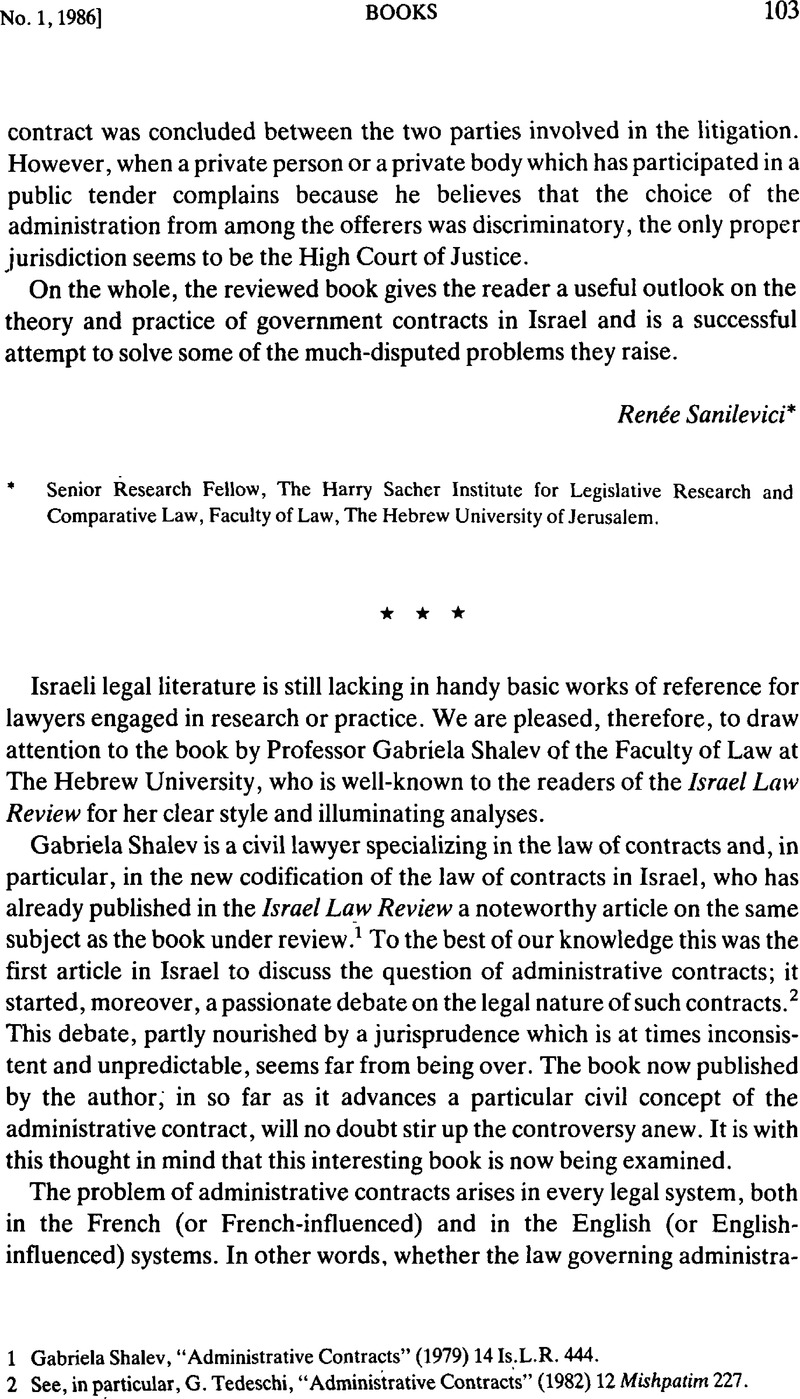No CrossRef data available.
Published online by Cambridge University Press: 16 February 2016

1 Shalev, Gabriela, “Administrative Contracts” (1979) 14 Is.L.R. 444Google Scholar.
2 See, in particular, Tedeschi, G., “Administrative Contracts” (1982) 12 Mishpatim 227Google Scholar.
3 See the classic study by Dicey, in An Introduction to the Study of the Law of the Constitution (10th ed., 1965)Google Scholar, especially ch. XII (“Rule of Law compared with droit administratif”) 325.
4 See, e.g., in the fourth chapter concerning the conclusion of the administrative contract, where the question is raised regarding art. 12 of the Contracts (General Part) Law, 1973 (27 L. S. I. 117), i.e., the good faith requirement.
5 Op. cit., supra n. 1 at 444, 446.
6 It is not quite clear whether the statement, according to the context, applies to contracts of local authorities with private parties or to “government” contracts with local authorities (see the note referring to French and German law (p. 5, n. 6) as distinct from American law).
7 This definition, which refers to the account in the introduction, appears even more dogmatic!
8 See Laubadère, , Traité des Contrats Administratifs (2nd ed.), vol. 1, p. 126Google Scholar.
9 Paless v. Minister of Transport (1952) 9 P.D. 436, 446; see also the decision in Miller v. Minister of Transport (1960) 15 P.D. 1989, 2001, one of the most important on this subject.
10 It should be recalled that in France three categories of contract are included under administrative contracts: contracts determined by law (e.g., public works contracts); contracts associating the co-contracting party (under private law) with the actual execution of a public service; and contracts containing exorbitant clauses under common law.
11 Especially the opinions of Profs. Friedmann, Tedeschi, Barak.
12 It will be noted that this sentence refers to a note (n. 1, p. 148) indicating: “This, of course, comes under the general jurisdiction of the High Court of Justice over acts of the administration”! This seems obvious and yet, does it not ruin the essence of the proposed thesis?
13 See, e.g., n. 2, p. 149. Most of the decisions are relatively old.
14 (1952) 6 P.D. 36, cited p. 149, n. 3.
15 (1959) 13 P. D. 1165.
16 See, e.g., Samuel v. Minister of Defence (1955) 9 P.D. 1936.